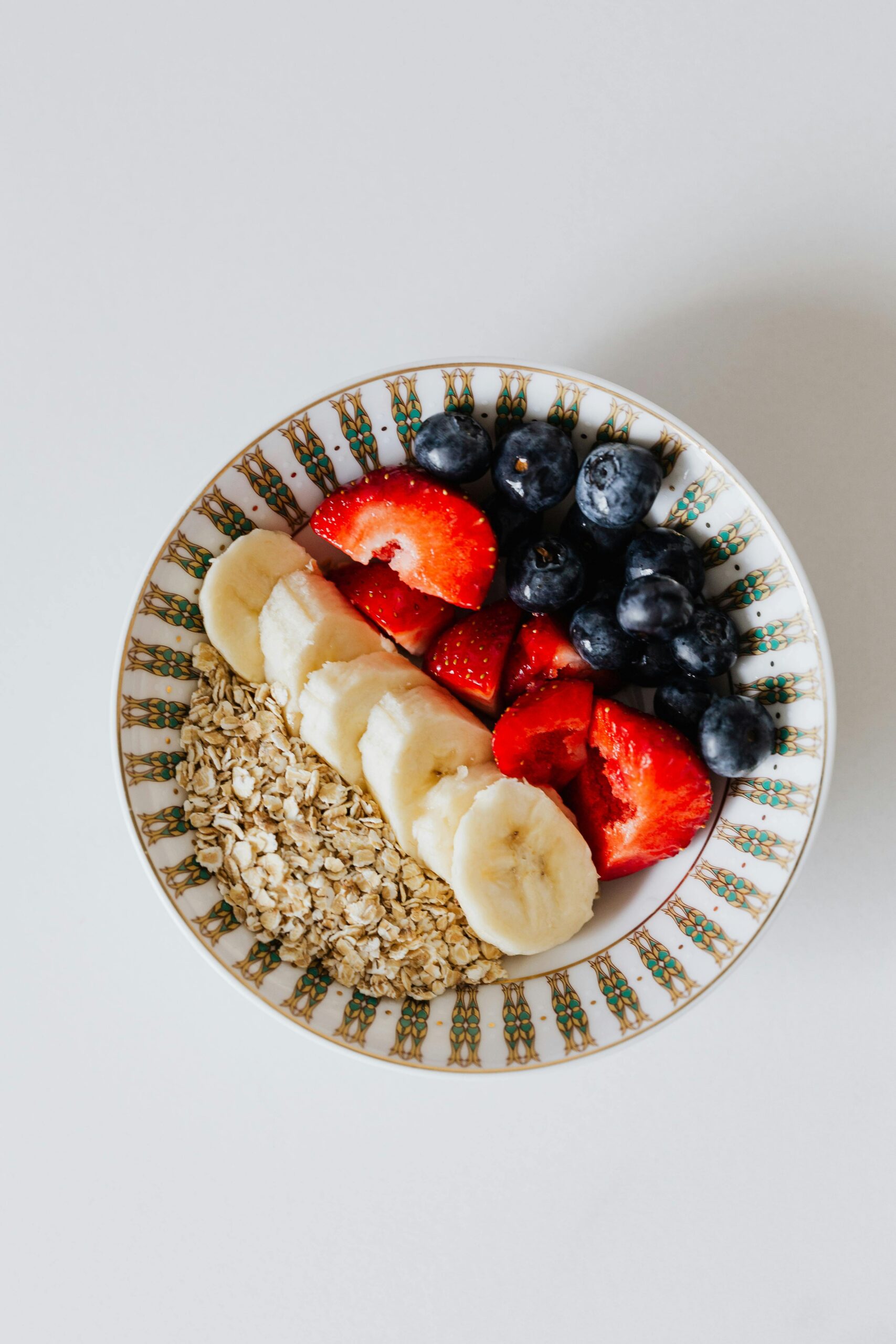When it comes to fitness, we often focus on the exercises, the reps, and the weights. But one of the most important—yet frequently overlooked—factors in achieving your fitness goals is nutrition. What you eat before and after a workout can significantly impact your performance, recovery, and muscle growth.
Please like, comment, and share this article if you found it helpful and
informative.
For more news check out Big Town Bulletin News
For more from Big Town Bulletin check out Big Town Bulletin
In this article, we’ll break down the best foods to fuel your body before and after exercise. Whether you’re aiming to build muscle, lose fat, or simply enhance your workout performance, the right nutrition can help you maximize your efforts.
The Role of Nutrition in Fitness
Before we dive into specific foods, it’s important to understand why nutrition plays such a crucial role in fitness. When you exercise, you put your body under stress. Your muscles are broken down, energy stores are depleted, and your body goes into repair mode. The nutrients you consume around your workout are what provide the energy and raw materials your body needs to recover, rebuild, and grow stronger.
Fueling up properly before and after exercise ensures that your body has the energy it needs to perform at its best and recover effectively. Let’s take a closer look at the types of nutrients you need and when to consume them.
Pre-Workout Nutrition: Fueling Up for Success
The food you eat before a workout is key to giving you the energy you need to perform at your best. A balanced pre-workout meal should include a combination of carbohydrates, protein, and a small amount of fat. Let’s break this down:
1. Carbohydrates: Your Primary Energy Source
Carbs are your body’s preferred source of energy, especially during high-intensity exercise. When you consume carbohydrates, your body breaks them down into glucose, which is stored in your muscles and liver as glycogen. Glycogen acts as a quick and readily available fuel source during exercise.
Opt for complex carbohydrates like whole grains, oats, sweet potatoes, and brown rice before a workout. These foods release energy slowly, providing you with a sustained energy supply throughout your training session. Avoid sugary snacks or refined carbs, as they can cause a spike in blood sugar followed by a crash.
2. Protein: Supporting Muscle Growth and Repair
While protein’s role in muscle repair and growth is typically discussed post-workout, having a small amount of protein before exercising can help with muscle protein synthesis during the workout itself. It also ensures that your body has the building blocks it needs to repair muscles after the stress of exercise.
Sources of lean protein include chicken, turkey, eggs, Greek yogurt, and plant-based options like tofu or legumes. Aim for 10-20 grams of protein in your pre-workout meal to give your body a head start in supporting muscle recovery.
3. Healthy Fats: Slow-Release Energy
While fat isn’t the body’s primary fuel source during intense exercise, a small amount of healthy fats can provide sustained energy, especially for lower-intensity or endurance workouts. Sources of healthy fats include avocados, nuts, seeds, and olive oil. Keep the portion sizes moderate, as fats take longer to digest than carbs and protein, which could leave you feeling sluggish if you eat too much right before working out.
When to Eat: Timing is Key
Aim to eat your pre-workout meal about 60-90 minutes before exercising. This gives your body enough time to digest and begin metabolizing the nutrients for energy. If you’re in a rush or prefer a lighter snack, opt for something small and easy to digest, like a banana with a scoop of peanut butter or a protein smoothie.
Post-Workout Nutrition: Rebuilding and Recovering
After you finish your workout, your body enters a recovery phase. Muscles need repair, energy stores need replenishing, and hydration must be restored. This is where post-workout nutrition plays a critical role. A combination of protein and carbohydrates is key to refueling and kick-starting the recovery process.
1. Protein: Repair and Rebuild
Post-workout is when your muscles are most receptive to the nutrients they need to repair and grow. Consuming protein after your workout provides your muscles with amino acids, the building blocks required for muscle repair and growth.
Aim for around 20-30 grams of protein post-workout. This can come from lean meats, fish, eggs, or plant-based proteins like quinoa, lentils, or a protein powder shake. Consuming protein shortly after exercise (ideally within 30-60 minutes) is often recommended for optimal muscle recovery.
2. Carbohydrates: Replenishing Glycogen
During exercise, your muscles burn through their glycogen stores. To replenish this energy, you need to consume carbohydrates after your workout. The type of carbs you eat post-workout can help restore glycogen levels more efficiently.
Focus on easily digestible carbs, such as fruits, white rice, potatoes, or whole grain pasta. Simple sugars from fruits like bananas, berries, or apples are great choices because they are absorbed quickly, helping to restore glycogen rapidly. The general guideline is to consume 1-1.5 grams of carbohydrates per kilogram of body weight in the post-workout window.
3. Healthy Fats: Keep It Moderate
Unlike pre-workout, fats are less important immediately after a workout. While they provide essential nutrients for overall health and hormone production, too much fat can slow down the digestion and absorption of carbs and protein when you’re looking to maximize recovery.
A small amount of healthy fats—such as a tablespoon of nut butter, a few slices of avocado, or a handful of nuts—is sufficient.
Hydration: Don’t Forget the Fluids
Exercise causes you to lose fluids through sweat, which can lead to dehydration if not replenished. It’s essential to hydrate both before and after a workout. Water is usually sufficient for most workouts, but if you’ve been exercising intensely for an extended period or in hot conditions, you may need to replenish electrolytes. Coconut water or a low-sugar sports drink can help restore sodium, potassium, and magnesium.
Sample Pre- and Post-Workout Meals
To give you a better idea of how to combine these foods, here are some simple meal ideas that can fuel your workouts:
Pre-Workout Meal Ideas:
- Oatmeal with banana slices and almond butter: A solid source of complex carbs, healthy fats, and protein.
- Greek yogurt with berries and a drizzle of honey: A protein-rich snack with natural sugars from the fruit for quick energy.
- Whole grain toast with avocado and a boiled egg: Carbs, healthy fats, and protein to keep you energized.
Post-Workout Meal Ideas:
- Grilled chicken with quinoa and roasted vegetables: A balanced meal with lean protein, carbs, and fiber.
- Protein smoothie with spinach, banana, almond milk, and protein powder: Quick to digest and packed with protein and carbs.
- Salmon with sweet potatoes and a side of greens: Rich in omega-3s, lean protein, and complex carbohydrates.
Final Thoughts: Nourish Your Body for Optimal Results
Proper nutrition is a key pillar of fitness success. Whether you’re looking to increase strength, improve endurance, or recover more quickly, what you eat before and after your workout plays a critical role in achieving those goals. By fueling your body with the right combination of protein, carbs, and healthy fats at the right times, you’ll set yourself up for success in the gym and beyond.
Remember: your body needs quality fuel to perform at its best, so make every meal count.
Please like, comment, and share this article if you found it helpful and
informative.
For more news check out Big Town Bulletin News
For more from Big Town Bulletin check out Big Town Bulletin


